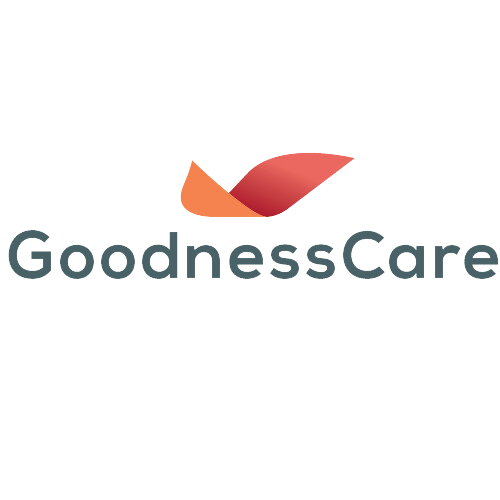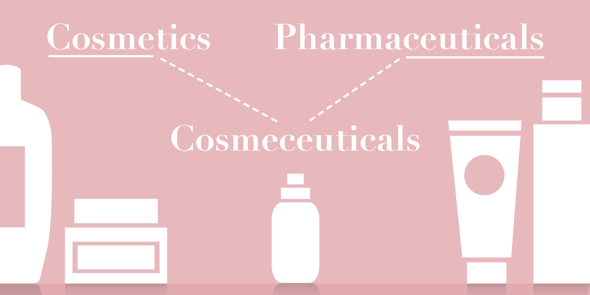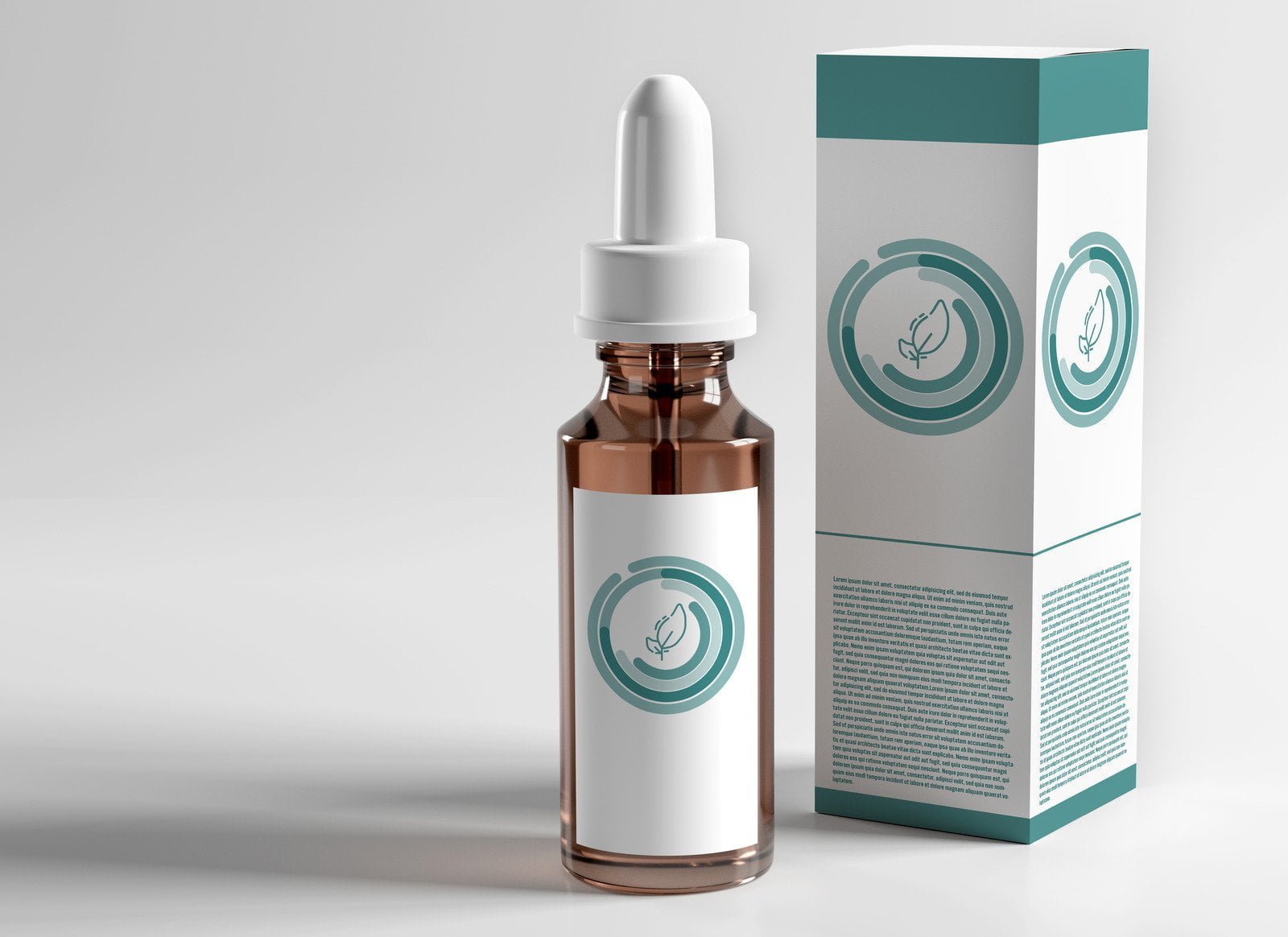Maintaining motivation is crucial for success. Whether you’re promoting innovative pharmaceuticals, cutting-edge medical devices, or essential healthcare services, the role of a medical sales representative requires resilience, dedication, and a perpetual drive to excel. This article delves into practical strategies to motivate yourself and stay inspired in medical sales’s challenging yet rewarding realm.
1. Cultivate a Clear Sense of Purpose
Cultivating a clear sense of purpose is pivotal for sales representatives, serving as the driving force behind passion and dedication. Here’s how anchoring your professional journey in a profound sense of purpose transforms your role:
- Linking Sales Targets to Healthcare Impact: In medical sales, achieving sales targets takes on new meaning when tied to the tangible impact on individuals and communities. Cultivating a clear sense of purpose involves understanding how each successful sale improves patient outcomes, ensures access to innovative treatments, or advances healthcare solutions.
- Holistic Understanding of Healthcare Improvement: A holistic understanding of your role’s significance is crucial beyond meeting quotas. Regular reflection on the broader implications of your work in healthcare improvement provides a compass for navigating the complexities of medical sales, contributing to streamlined patient care, enhancing treatment options, and addressing unmet medical needs.
- Personalizing the Impact on Patient Lives: In medical sales, products, and solutions are lifelines for patients. Cultivating a clear sense of purpose involves visualizing the patient stories behind the products you represent. Understanding the human element adds depth to your sense of purpose, reinforcing the meaningful nature of your role.
- Aligning Professional Aspirations with Healthcare Goals: The synergy between professional aspirations and broader healthcare goals forms the foundation of purpose-driven motivation. Aligning personal ambitions with overarching healthcare goals provides a narrative that fuels motivation.
- Fostering a Positive Impact Mindset: Cultivating a clear sense of purpose involves adopting a mindset centered on positive impact within the healthcare landscape. Instead of viewing sales transactionally, see it as a pathway to positive change. Reflect on how your role contributes to advancements in patient care, facilitates medical breakthroughs, or addresses healthcare disparities.
- Connecting with End Users and Healthcare Providers: Actively connecting with end users and healthcare providers reinforces the tangible impact of your role. Engage in conversations highlighting healthcare’s human side, strengthening your commitment to making a difference.
2. Set SMART Goals
Adopting SMART goals is a strategic compass guiding your professional journey in sales. The intricacies of the medical sales role demand a meticulous approach, ensuring objectives are clear, achievable, and intricately aligned with the healthcare landscape. Here’s how SMART goals become a roadmap for success:
- Specific Goals Tailored to Healthcare Dynamics: SMART goals demand specificity, requiring sales representatives to define objectives clearly. For instance, instead of a broad goal like “increase sales,” a specific goal could be “achieve a 20% growth in sales of cardiovascular medications within the cardiology department.”
- Measurable Objectives Aligned with Performance Metrics: Measuring success is integral to goal attainment in medical sales. SMART goals necessitate quantifiable metrics, allowing reps to track progress objectively, whether successful product demonstrations, lead conversion rates, or meeting sales quotas.
- Achievable Targets: SMART goals emphasize achievability, ensuring targets are realistic within the industry’s complexities. Setting achievable goals promotes a sense of accomplishment, boosting motivation and fostering a proactive approach to overcoming challenges.
- Relevance to Evolving Healthcare Needs: SMART goals require alignment with the current healthcare landscape, reflecting an understanding of evolving trends, technologies, and patient demographics. Relevant goals ensure efforts contribute meaningfully to the broader healthcare narrative.
- Time-Bound Objectives for Strategic Planning: Time-bound goals bring urgency and strategic planning to medical sales. Setting deadlines ensures a proactive and organized approach in an environment where timely decision-making is crucial.
- Breaking Down Larger Goals into Actionable Steps: SMART goal-setting encourages breaking down larger objectives into smaller, actionable steps. This provides a detailed roadmap, allowing reps to strategically navigate complex processes, regulatory hurdles, and client relationships.
- Celebrating Accomplishments for Continuous Motivation: SMART goals advocate celebrating each accomplishment, creating a positive feedback loop that sustains motivation. Acknowledging milestones reinforces a sense of achievement and propels reps forward in the journey of medical sales success.
3. Embrace Continuous Learning
Embracing continuous learning is not just a professional choice; it’s a strategic imperative. The dynamic nature of the medical field demands that medical sales representatives stay at the forefront of advancements and evolving technologies. Here’s how an unwavering commitment to continuous learning ensures professional growth and becomes a driving force behind success:
- Navigating Advancements in Medical Science: Stay informed about the latest breakthroughs in medical science by attending industry conferences, seminars, and workshops. This positions you as a trusted advisor to healthcare professionals, enabling informed discussions and aligning your offerings with the latest advancements.
- Adapting to Technological Innovations: Continuous learning ensures leveraging technological innovations to enhance your strategies. Stay updated on digital health solutions, data analytics tools, and other advancements that streamline your approach to engaging with healthcare providers, offering solutions aligned with evolving needs.
- Participating in Continuous Training Programs: Active participation in tailored training programs covers topics from product knowledge to sales techniques and compliance regulations. This equips you to communicate the value proposition of your products effectively, navigate regulatory requirements, and adapt your sales approach to evolving market dynamics.
- Staying Informed about Market Trends: Extend learning to grasp the current market landscape by engaging with market research reports, industry publications, and analyses. Awareness of market trends enables anticipating shifts in healthcare practices, responding proactively to emerging challenges, and aligning sales strategies with evolving provider needs.
- Enhancing Professional Expertise: Improve professional expertise by staying updated on the latest clinical studies, treatment guidelines, and therapeutic approaches relevant to your product portfolio. This depth instills confidence in healthcare professionals and positions you as a knowledgeable resource.
- Demonstrating Adaptability to Healthcare Providers: Showcase adaptability and a commitment to staying informed, fostering trust with healthcare professionals. Embracing continuous learning reflects your ability to evolve alongside the dynamic healthcare landscape, bringing knowledge and a forward-thinking approach to collaborations.
4. Build and Nurture Professional Relationships
The significance of cultivating and nurturing professional relationships cannot be overstated. These connections are not just social; they are the lifeline that fuels success, propels career growth, and provides an invaluable support system. Here’s how building and nurturing professional relationships are the pillars of success:
- Establishing Trust with Healthcare Professionals: Trust is the currency driving transactions and collaborations in medical sales. Cultivate solid and trustworthy relationships with healthcare professionals, including physicians, clinicians, and decision-makers. By understanding providers’ needs, you can tailor your approach, providing solutions that meet their requirements.
- Collaborating with Colleagues: Team collaboration is essential for collective goals. Build strong connections with colleagues, recognizing that each member brings unique skills and experiences. Collaborative efforts amplify the impact of sales strategies, fostering a team culture where shared insights lead to collective success.
- Networking with Industry Experts: Actively engage with industry experts, thought leaders, and influencers. Attend conferences, seminars, and events to connect with professionals who offer valuable insights and guidance. Building a network of industry experts expands your knowledge base and opens doors to new opportunities.
- Creating Mutually Beneficial Alliances: Cultivate relationships with healthcare providers, understanding their pain points and challenges. Position yourself as a partner who can provide solutions and value, contributing to long-term success and being viewed as a trusted collaborator in improving patient outcomes.
- Sharing Experiences and Insights: Actively participate in forums and online platforms where professionals exchange ideas and challenges. Sharing experiences contributes to collective knowledge and provides a platform for learning from others. This open exchange fosters a culture of continuous improvement and mutual support.
- Fostering a Sense of Belonging: The dynamic nature of medical sales can be challenging, but a strong network enables a sense of belonging. Engage with peers, share the highs and lows of your journey, and seek advice when needed. A sense of belonging motivates you during challenging times and strengthens your resilience and determination, creating a source of encouragement and shared success in the medical sales community.
5. Develop a Resilient Mindset
Cultivating resilience is essential for navigating the highs and lows in the medical sales profession. Here’s how building strength becomes a cornerstone of your success:
- Embrace Setbacks as Learning Opportunities: In sales, setbacks are inevitable. View lost deals or challenging market conditions as valuable lessons. Analyze each situation, identify areas for improvement, and integrate insights into future strategies. Extracting lessons from setbacks contributes to personal growth and positions you as a reflective professional.
- View Challenges as Stepping Stones to Success: Challenges are not roadblocks but stepping stones to success. Each obstacle refines your approach, innovates strategies, and deepens your market understanding. Approach challenges with a mindset welcoming the chance to demonstrate resilience and resourcefulness. This perspective transforms challenges into catalysts for professional growth.
- Bounce Back from Disappointments: Medical sales can be a rollercoaster of emotions. Bounce back with determination and a positive outlook. Recognize setbacks as temporary and the next opportunity for success as imminent. Swift recovery from disappointments safeguards mental well-being and reinforces your commitment to long-term success.
- Reinforce Determination to Overcome Obstacles: A resilient mindset reinforces determination to overcome obstacles. Challenges are tests of perseverance and commitment to professional aspirations. Remind yourself of overarching goals and the impact you aim to make in the healthcare industry. This reinforcement becomes a driving force, propelling you forward in adversity.
- Utilize Support Systems: Building resilience doesn’t mean facing challenges alone. Cultivate robust support systems within the community. Connect with colleagues, mentors, or industry peers for insights, advice, and encouragement. Sharing experiences reinforces your sense of belonging, providing robust support during challenging times.
- Cultivate Adaptive Strategies: Resilience in medical sales involves enduring challenges and adapting strategies. Develop adaptive strategies to pivot when necessary. Whether adjusting your sales approach to meet market demands or incorporating feedback to enhance professional skills, a resilient mindset propels you to be agile and responsive in an ever-changing healthcare landscape.
6. Leverage Technology for Efficiency:
Strategic integration of technology is a game-changer, offering a multifaceted approach to boost efficiency in sales endeavors.
- Implement Comprehensive CRM Solutions: Embrace advanced Customer Relationship Management (CRM) tools tailored to medical sales intricacies. These platforms provide insights into customer preferences, past interactions, and potential opportunities. Leveraging CRM functionalities enhances your understanding of healthcare providers’ needs, personalizes engagements, and strategically plans your sales approach.
- Harness Digital Communication Platforms: Utilize digital communication platforms for seamless interactions with healthcare professionals. Video conferencing, email campaigns, and virtual presentations bridge geographical gaps, allowing you to engage with a broader audience and build relationships remotely. This expands outreach and aligns with the evolving landscape of healthcare communication.
- Utilize Data Analytics for Informed Decision-Making: Embrace data analytics tools to derive actionable insights from market trends, customer behavior, and sales performance. Understanding healthcare nuances through data-driven analysis tailors sales strategies identifies emerging opportunities, and refines approaches based on real-time information. This analytical approach empowers informed decision-making.
- Optimize Time Management with Automation: Explore automation tools for handling repetitive tasks, allowing focus on high-value activities. Automated appointment scheduling, email campaigns, and follow-up reminders streamline workflows, ensuring time is efficiently allocated to tasks requiring a personal touch. This optimization boosts productivity and frees up energy for cultivating meaningful connections.
- Enhance Mobile Capabilities for On-the-Go Efficiency: Leverage mobile technology to stay connected and responsive. Mobile-friendly CRM applications, communication tools, and sales enablement platforms grant access to vital information, facilitate prompt responses to inquiries, and keep engagement with healthcare providers regardless of location. This flexibility enhances responsiveness and ensures agility in a dynamic sales environment.
- Integrate Virtual Product Demonstrations: Capitalize on virtual technologies for remote product demonstrations. Virtual demonstrations save time and allow healthcare providers to experience products interactively. Interactive presentations, augmented reality (AR), or virtual reality (VR) simulations create memorable and impactful engagements, positively reinforcing your offerings.
- Stay Informed About Technological Advancements: The technological landscape in medical sales is ever-evolving. Stay informed about the latest advancements through webinars, industry publications, and training programs. Keeping your technological toolkit cutting-edge enhances credibility and positions you as an informed and adaptable professional.
7. Prioritize Work-Life Balance:
Prioritizing work-life balance is necessary for sustained motivation and optimal performance in the medical sales landscape. Here’s how intertwining work and life in a balanced manner is crucial:
- Preventing Burnout for Long-Term Success: The intensity of medical sales comes with a constant risk of burnout. Prioritizing work-life balance is a proactive measure against burnout, ensuring sustained passion and energy for long-term success.
- Allocating Time for Personal Pursuits: Striking a balance involves actively engaging in personal pursuits that bring joy and fulfillment. Allocate dedicated time for hobbies, interests, and activities that rejuvenate your mind and spirit, contributing to overall well-being.
- Enhancing Mental and Emotional Resilience: A well-maintained work-life balance is a mental and emotional resilience cornerstone. By creating boundaries, you allow space to decompress, reflect, and recharge, enhancing your ability to navigate the challenges of medical sales.
- Optimizing Performance Through Well-Being: A rejuvenated mind and body are prerequisites for optimal performance. Prioritizing work-life balance is a performance optimization strategy, allowing you to approach professional responsibilities with a rested and focused mindset.
- Fostering Long-Term Motivation: Motivation requires nurturing. Prioritizing work-life balance contributes to long-term motivation sustainability. Avoiding burnout and maintaining personal fulfillment create a positive cycle, reinforcing motivation throughout your medical sales career.
- Cultivating a Healthy Company Culture: In the collaborative world of medical sales, organizational culture plays a vital role. Companies valuing and supporting work-life balance create an environment where individuals feel valued, leading to higher morale and sustained motivation. Seek organizations aligning with your values for a positive work environment.
8. Seek Recognition and Celebrate Achievements
Seeking recognition and celebrating accomplishments are pivotal drivers of sustained motivation in medical sales. Here’s how this practice is integral to the journey:
- Acknowledging Small Wins for Continuous Motivation: Recognize and celebrate incremental achievements, reinforcing that every step forward, no matter how small, is a positive progression in the medical sales journey.
- Seeking Recognition for Individual and Team Success: In the collaborative world of medical sales, seek recognition for individual and team successes. Acknowledge contributions, strengthening team cohesion and fostering a shared sense of accomplishment.
- Celebrating Sales Milestones: Beyond acknowledging numbers, celebrating sales milestones recognizes the effort, strategy, and perseverance contributing to success. Whether reaching monthly goals, securing significant accounts, or achieving record-breaking quarters, celebrating milestones connects accomplishments with professional fulfillment.
- Positive Feedback and Client Testimonials: Actively seek and celebrate positive client feedback and testimonials. These affirmations validate professional competence and provide tangible evidence of your positive impact on healthcare providers and patient care.
- Bolstering Confidence and Self-Efficacy: Recognition and celebration contribute to confidence and self-efficacy. Acknowledgment reinforces belief in your abilities, becoming a driving force for tackling new challenges and pushing boundaries.
- Fostering a Positive and Motivated Culture: Seeking recognition and celebrating achievements is an individual practice and an organizational cultural phenomenon. Companies fostering a culture of recognition create an environment where motivation thrives, contributing to higher morale and sustained enthusiasm in the challenging landscape of medical sales.
9. Stay Adaptable in a Changing Landscape
In the ever-evolving realm of medical sales, adaptability is not just recommended; it’s a strategic imperative. The landscape is characterized by constant shifts influenced by market trends, regulatory changes, and emerging technologies. Here’s how adaptability becomes a linchpin for success:
- Dynamic Market Trends and Consumer Preferences: The healthcare industry evolves with technological advancements, changing patient preferences, and emerging treatment modalities. Adapting in medical sales involves staying informed about developments, like telehealth solutions or shifts in patient care models, and aligning sales strategies with current market dynamics.
- Navigating Regulatory Changes and Compliance: Regulatory frameworks in healthcare undergo updates. Staying adaptable includes a keen awareness of changes and compliance requirements. Proactively adapting to regulatory shifts ensures legal compliance and demonstrates a commitment to professionalism.
- Integration of Emerging Technologies: Technology transforms healthcare, influencing how products are marketed and utilized. Adapting to emerging technologies, such as digital therapeutics and data analytics, is essential for competitiveness. Embracing these technologies enhances sales efficiency and positions you as a forward-thinking representative.
- Proactive Adjustment of Sales Strategies: Agility in adjusting strategies to diverse healthcare providers is integral. Adapting based on client’s requirements, understanding their pain points, and customizing sales pitches ensure success. Staying adaptable ensures responsiveness to the nuanced demands of different segments in the healthcare landscape.
- Continuous Learning and Skill Development: Adaptability extends to personal and professional growth. Continuous learning and skill development, including product knowledge and communication skills, position you as a resourceful and adaptable professional in a field that demands expertise and flexibility.
- Navigating Competitive Dynamics: The medical sales arena is competitive. Staying adaptable requires understanding competitive dynamics, assessing competitor strategies, identifying differentiation opportunities, and strategically positioning yourself. Adaptability involves a proactive stance, anticipating market shifts, and maintaining a competitive edge.
10. Practice Self-Care
Amidst the demands of the medical sales profession, prioritizing self-care is fundamental for sustaining motivation and overall well-being. Here’s how a commitment to self-care is integral to excelling:
- Balancing Demanding Schedules: Medical sales professionals juggle demanding schedules, requiring a balance that dedicates time to personal well-being. Carving out moments for relaxation, hobbies, and quality time with loved ones ensures overall health amid professional rigors.
- Ensuring Adequate Sleep: Recognizing the importance of restful sleep in a role demanding mental acuity, practicing good sleep hygiene is crucial. Establishing a consistent sleep routine and prioritizing recommended hours contribute to enhanced focus and productivity.
- Engaging in Regular Physical Activity: Incorporating regular physical activity into your routine supports physical well-being. Whether through morning workouts, brisk walks during breaks, or utilizing hotel gyms during trips, maintaining fitness contributes to increased energy and stress management.
- Nourishing Your Body with a Balanced Diet: The demands of medical sales require sustained energy and mental alertness. Self-care involves nourishing your body with a balanced diet, opting for nutrient-dense foods, and staying hydrated for sustained energy in a fast-paced environment.
- Stress Management and Emotional Well-being: Medical sales can be stressful, with targets and deadlines adding pressure. Prioritizing self-care includes adopting stress management techniques, such as mindfulness or seeking support from colleagues or mentors, contributing to a resilient and motivated mindset.
- Building a Support System: Self-care extends to building a robust support system. Cultivating positive relationships with colleagues, friends, and family provides emotional support and shared experiences, reducing feelings of isolation and enhancing overall job satisfaction.
In conclusion, motivation as a medical sales representative is an ongoing journey that requires intentional effort and a commitment to personal and professional growth. You can unlock your full potential and thrive by cultivating purpose, setting clear goals, embracing continuous learning, building strong relationships, and prioritizing well-being.





